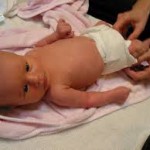
Almost two years of retirement has taught me a couple lessons. Even if you are not retired, these lessons may have some value for you, too.
Not Eating Well
The first lesson is one that surprised me a great deal: how easily we can get nutritionally out of whack, and how quickly it can devastate you.
No doubt you are thinking that this is a no-brainer. Everyone knows to eat well, right?
Well, of course I knew to try to eat well. During my first year of retirement, I ate out a lot, and generally wound up having good nutrition as a result, because I typically ate at good places. I might even have gained a couple of pounds, which was no problem because I have always been thin. (I have one of those high-burn metabolisms.)
But, eating out got boring. It became more convenient to just eat at home. The problem is: my dogs don’t know how to cook, and I am not much better at it than they would be, so I ate a lot of sandwiches. I figured 3 or 4 sandwiches a day, and some cereal in the mornings, would give me adequate protein and carbs.
Then one day I woke up and realized that I am very underweight and that I feel rundown all the time. It seemed to happen fairly quickly. Of course, I was losing weight the whole time, but it was not that noticeable until it began its exponential curve.
Now I am scrambling to add some calories to my daily intake (drinking cans of Ensure Plus), ensuring I eat wholesome foods often enough, taking vitamins, and so on. But I am not going to work out of this overnight. It will take some time to get built back up.
Interestingly, when I retired I figured that gaining too much weight would be a potential problem. So, by having a mindset on that, I was oblivious to watching for the opposite to happen.
In reflecting back on this period of weight loss (several months of it), I suspect it also impacted the quality of my thinking. I don’t know this for sure, as none of us are all that good at gauging the quality of our thinking, but I suspect it, and also suspect that this hindered my picking up on my problem sooner. I do know that the brain needs good nutrition before it can give its best.
Anyway, a heads-up for you, whether you are retired, thinking about it, or have a long way to go before retiring: nutrition really is important, and it’s easy to set yourself up so that you are not getting the nutrition you need.
Missing Work
No, I do not miss getting up at 4:30 am, I do not miss the traffic hassles, and I sure don’t miss traveling. (I miss the destinations and the people I worked with at those destinations, but not the aggravating travel.)
Work does add meaning to one’s life, though. It gives you a feeling of being needed, being part of a bigger team, a sense of accomplishment, and a level of social interaction (with good friends) that just makes you feel good.
Before going into retirement, I knew about the importance of staying busy. That’s one of the reasons I blog: it gives me something to do on a somewhat regular basis, and it gives me some degree of social interaction, although it’s not the same as working with friends. (Virtual communities can never equate to real interaction with people you actually know and who actually know you.)
But it’s a far cry from doing work in which your experience actually matters. We talked last week about how there are over 100,000 new blogs added to the web every day. Hence, looking at the broad view, if I stop blogging, it will have almost zero impact.
Totally unlike my retirement from the real world, where my experience is now actually missed (as is the experience of other retirees). And, obviously I miss my friends and the feeling of accomplishment that comes from my experience actually mattering.
So what can you learn from this? For one, be sure to draw some meaning from your work. I assure you it is there if you look. Secondly, when you do retire, make sure you find something to do that gives you a sense of meaning and contribution.


